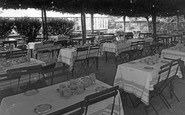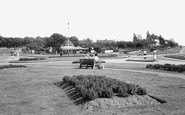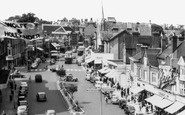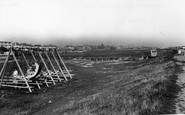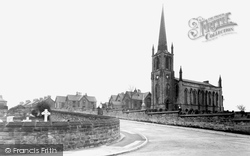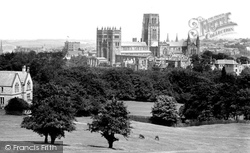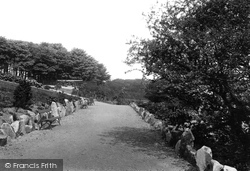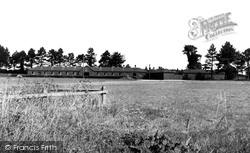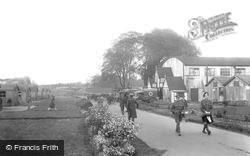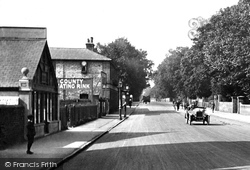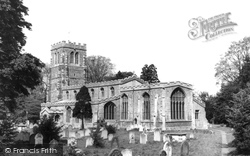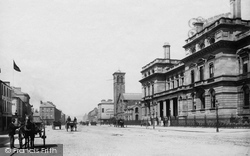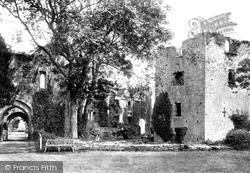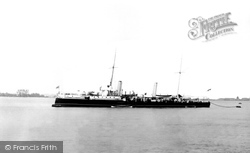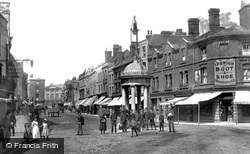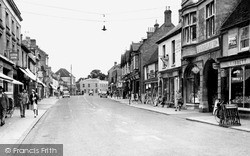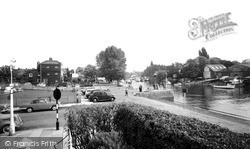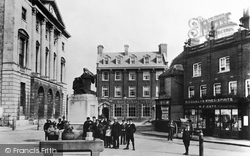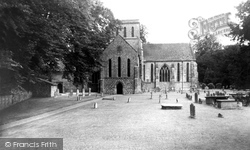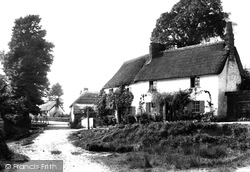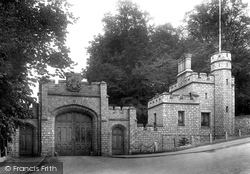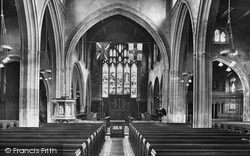Places
1 places found.
Those places high-lighted have photos. All locations may have maps, books and memories.
Photos
Sorry, no photos were found that related to your search.
Maps
22 maps found.
Books
1 books found. Showing results 433 to 1.
Memories
421 memories found. Showing results 181 to 190.
Born In Avondale Rd Rayleigh Essex
I was born at home in Avondale Rd, Rayleigh Essex in 1958. We moved to Canvey Island & then in 1963 we relocated to Australia. I only have a few memories of Rayleigh & the most predominant was Snows Farm ...Read more
A memory of Rayleigh by
Childhood & Youth In West Kilburn
After the war, my brother David & I returned to Kilburn from evacuation. Our Smith family was re-united at 28 Kilburn House, Malvern Place, where mum (Isobel) continued to live during the Blitz. Dad ...Read more
A memory of Kilburn by
Memories Of Wealdstone And Harrow And The Ymca
I enjoyed Reg Ware’s reminiscing of Wealdstone and the YMCA. I know all of those places like the back of my hand. I am guessing you are perhaps 3 or 4 years older than me – I was born 1941. I used to ...Read more
A memory of Wealdstone
Wannock Gardens Tea Rooms
I have very fond memories of the Wannock Gardens Tea Rooms in the 1950s (and maybe into the 1960s). My dad was a Brighton coach driver who took trips of old ladies out for afternoon excursions and tea there. My sister ...Read more
A memory of Wannock in 1959 by
St. John Ambulance Brigade, First Aid Post,
The St. John Ambulance Brigade of Grays Thurrock had three wooden first aid posts that they manned over bank holidays and summer weekends which were along what was the main road from East End of London running ...Read more
A memory of Grays by
Elm Park In The Winter Of 1947
My father took a position with Costains, the big construction company. They had recently built several hundred semi-detached homes in a new development in Elm Park; Dad decided, as we needed a new place to live after ...Read more
A memory of Bromley by
Training Pit Ponies At Oxclose. Ryhope
Training Pit Ponies at Ryhope Oxclose was a row of 5 terraced houses owned by the Colliery and located at the top of the lane which passed the eastern side of the Cricket field. At the Western end of 5 terraced ...Read more
A memory of Ryhope by
Holidays In Lancing
When I was a child we had our annual holiday in Lancing. Mum, Dad and Grandad with my sister and I travelled from Reigate, in Surrey. I remember a kind friend who gave us a lift down until we had our own car to travel in - a ...Read more
A memory of Lancing by
My Childhood In Godstone 1944 1959
I was born in Eastbourne Road, in a house opposite the sand pits and the common. My name was Wendy Mitchell. With my sisters and brother I would spend hours picking bluebells and primroses and climbing trees ...Read more
A memory of Godstone by
Merched Y Bryniau
Another Pentraeth Memory. by Ross Davies Just about 38 years ago, I was approached by some of my former pupils, who were now mostly married and with children of their own, with the idea of forming a Pentraeth based ...Read more
A memory of Pentraeth in 1969 by
Captions
469 captions found. Showing results 433 to 456.
He began to exploit this natural resource on his land, in the process becoming one of the biggest producers of coal in South Yorkshire.
Initially there had been an attempt to build the Lady Chapel at the eastern end, but the foundations were insecure and the walls began to crack.
Work began in July of that year to prepare the estate for its opening as a park. The official opening took place on Whit Monday, 22 May 1893.
In 1932, Gordon Richards began riding for Fred Darling, the lead- ing trainer of his day.
Inspector Pawley called together all his men - three sergeants and seven constables - and they began to defend the station.
After the Bewleys faded out of the picture, the Anchor Street Ironworks were taken over by T H P Dennis, and production began to focus on steam- and water-valves.
As the town began to recover from the effects of the war, the Urban District Council turned its attention to providing the new housing that the town needed.
built at Longsowerby and Bousteads Grassing to the ENGLISH STREET IN THE 1920s TL00038 (Tullie House Museum & Art Gallery) Many of the properties shown on the left-hand-side of this photograph began
A few years after this photograph was taken, the church came under the care of a man who began to furnish the interior with nautical emblems.
Then it passed into the hands of William ap Thomas, a member of the minor Welsh gentry, who began to build the castle as we see it today.
When the Chilean ironclad 'Blanco Encalada' was attacked and sunk by two small boats armed with primitive torpedoes, the world's navies began at last to take the torpedo seriously.
Middle Row, which had hitherto backed onto the conduit-stream, now began occupying pockets of land on the west side of the stream, too.
Although so many of the old St Neots family businesses have disappeared, one that began in the early years of the 20th century still flourishes.
After the baths closed in 1981, officially for refurbishment, the council decided that the demand for a new pool could not justify the cost of extensive repair or replacement, and a search began
Famous local boys the Dave Clark Five were the resident group at Mecca's Locarno, and Basildon's own Alison Moyet began hitting the headlines with her chart-topping records in the 1980s.
No sooner had Thomas Mildmay obtained the manor of Chelmsford than the townspeople began to clamour for a new Market Cross: the old one was falling down around the judges' ears.
The east window is the work of Butterfield, who restored the church in 1853, ten years before he began work on Aldbourne.
figure on the calendar, although the local Staffordshire Newsletter and Stafford Post each brought out special editions, and there was correspondence debating whether the millennium actually began
Exmouth began as a suburb of the nearby villages of Littleham and Withycombe Raleigh, though both have now become suburbs of the newer town.
The old two-storey workshops that could be found everywhere began to be replaced by bigger buildings, often of two or three storeys, with the ground floor brick, and the upper weatherboarded.
Thus began the Carrington association with the town and the transformation of the manor house.

He began a policy of buying up land until all the properties in Horton had fallen into his hands within a few years.
It was not a good size for the church of a county town, and a complete rebuilding began in the first half of the 15th century.
The Anglo-Saxon Chronicle records that this new chapter in the city's history began in 1092: 'King William went north to Caerleul with a large army and restored the town and built the castle.
Places (1)
Photos (0)
Memories (421)
Books (1)
Maps (22)

